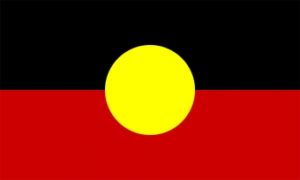
Music and art make continuing and surprising contributions to Dispute Resolution.
Greg Bond’s June Blog, written as a means of keeping his promise to write about the Beatles, shared lyrics that gave conflict a new voice.
Synchronicity has been at work and suddenly the Beatles lyrics are getting a lot of exposure in the conflict resolution space.
The Centre for the Advancement of Indigenous Knowledge Affairs in Sydney will soon sponsor the ‘Great Debate’. Titled ‘All You Need is Love’ the debate is intended to shine a light on the representations and anxieties in our relationships with First Peoples of Australia.
While I still know all the words to this Beatles’ song, it did not ever occur to me that this might be a song about a secret weapon for conflict resolution.
But it turns out that the Beatles were right and I was completely wrong.
Enter my accomplished colleague Dr Emma Lee and the remarkable conflict resolution exercise she labels ‘love bombing’.
Her story is extraordinary.
Appointed last year by the Centre for Social Impact at Swinburne University, Dr Lee is working as Swinburne’s 2018 Aboriginal and Torres Strait Islander Research Fellow. Her doctorate assisted in establishing the first joint management plan for the Tasmanian Wilderness World Heritage Area and provided a leadership role for Aboriginal Tasmanians to engage and participate in a range of cultural, economic and conservation functions of management and governance.
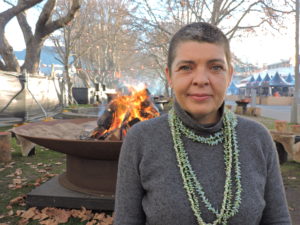
Dr Lee is not a lawyer and has no conflict resolution training – but she has probably achieved more and with more profound impact than most of us.
Recently the media has recognised her remarkable story. Once I saw the headline -‘We ‘love-bombed’ the Tasmanian government to win Indigenous rights’ – I needed to know more.
It is a significant story and it is particularly important that communities of dispute resolvers have access to it. However it is not my story and I don’t want to fall into the trap of speaking on her behalf because it is her story about her culture. So I have asked Dr Lee to join me in this blogpost.
Over to you Dr Lee.
When Dr Howell contacted me, I soared on high emotion that our Indigenous strategy to heal the trauma of genocide may have resonance for other communities to resolve deep conflicts.
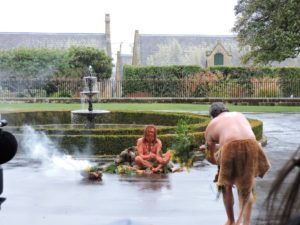
A little over a week ago, I attended a flag-raising ceremony at Government House, the highest office of the Tasmanian state, where the Aboriginal flag will now be flown permanently.
This represents a continuation of the efforts to use love and mutual respect to reset the relationship between Aboriginal Tasmanians, government and the broader public away from the violent governance that has characterised the past 200 years and towards healthy and functional communities of proud cultural peoples.
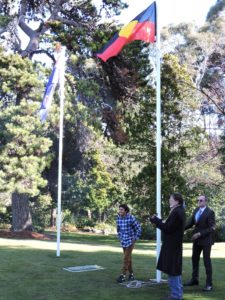
In December 2016 our peoples gained recognition within our Tasmanian State Constitution as First Peoples. This is extraordinary given that since 1876, upon the death of our countrywoman Trucanini, we were globally declared extinct – exterminated as a consequence of colonisation. However, in just under two short years, from raising the idea through to an Inquiry and a parliamentary bill, we were able to reclaim ourselves as contemporary beings away from extinction myths.
How did we do this? Well, Indigenous peoples are not known for wealth, so money did not make this happen, nor are we acknowledged as community powerbrokers, so it was not influence either. Instead, it was the love of Elders and others who demonstrated our joy and cultural values of kinship and reciprocity. We welcomed other Tasmanians to become part of our extended families and to see ourselves as brothers and sisters to each other. We thanked the government for our genocide, dispossession and exile and made a compact that in recovering ourselves and our culture we would invite other Tasmanians to join the journey with us. That way, if we fell down, or failed in the first attempt, we would have the support from the general public to dust ourselves off and keep going. We would learn together, and we would listen deeply to each other to respect the multiple opinions and views of our shared communities.
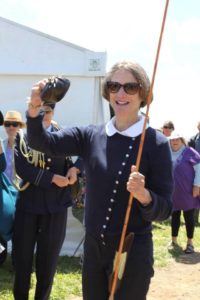
We told the Tasmanian Government that we trust them to do their jobs and make good these relationships and in return our Indigenous leadership was respected to self-determine our futures in our regions and territories. Our peoples reduced the anxiety of the broader community when we agreed on simple, but important, things, such as recognising the right of the Westminster System to make laws in return for the acknowledgement that we are First Peoples and traditional owners. This method means that we do not compromise over rights but come together to create safe negotiating environments for all future generations.
Love is powerful. When we love country, ancestors and Elders, we are able to share that belonging with all Tasmanians to find their place in relation to us. Instead of human rights becoming a toll on our peoples in the struggle for them, they became a place of shared vision, laughter and happiness – human rights can be fun! They can be negotiated from a position of mutual benefit where no one is left behind. We continue to make gains in education, land and sea management, fisheries, family care and cultural heritage – all new policies, funding, commitments and unique systems of condition-setting rather than proscribed lists of things.
When the Tasmanian Government created a whole-of-government strategy, entitled ‘Resetting the Relationship’, the cornerstone effect has been to reassure Aboriginal Tasmanians that improvement is key and open-door access to ministers means that we can continue the conversations to make stronger existing regulation and laws. Indeed, a powerful outcome has been the signing of a Statement of Intent from both major political parties to respect the functions of the reset policy and place Aboriginal affairs outside of election cycles. There is no better conflict mechanism that when we have set the protocols for respectful relations in place.
Our methodology of reducing discrimination, increasing shared power and reclaiming our histories away from trauma has reset the relationship towards trust, enduring decision-making and respectful negotiations. Above all, it has come from Indigenous leadership that is deeply rooted in cultural practices and knowledges that are tens of thousands of years old.
Old songs and old ways will always have important messages that are created anew when we really pay attention them.
________________________
To make sure you do not miss out on regular updates from the Kluwer Mediation Blog, please subscribe here.
Profile Navigator and Relationship Indicator
Access 17,000+ data-driven profiles of arbitrators, expert witnesses, and counsels, derived from Kluwer Arbitration's comprehensive collection of international cases and awards and appointment data of leading arbitral institutions, to uncover potential conflicts of interest.
Learn how Kluwer Arbitration can support you.



Emma and Rosemary, Thanks for bringing this to the world’s attention. It makes perfect sense, yet runs counter to almost all received wisdom about power and negotiation. I wish you continued success in this adventure.
Charlie
Thank you so much for reading our post and your lovely comment. Sometimes it does take a major shift in thinking away from the dominant norms that govern conflict resolution to make things work – we were so fortunate that our ways were successful, because if the government did not accept our strategy of working together then we were in big trouble, as there was no other place to go! I will always bet on the common good and decency of people to make things right, faith in humanity is a powerful tool and kept us going.
Thank-you Rosemary and Emma for sharing this approach and the success of taking on this attitude. It would have required courage and perseverance. What a powerful strategy!
Thank you dear Emma-May for reading our post and leaving your lovely words. I’m incredibly heartened by our strategy, it has this effect of wanting to do more and more for the common good of our island state because there is no downside to respect and mutual recognition. Yes to courage, it’s the scariest thing I have ever done!
Thanks Emma and Rosemary for this exciting story of reconciliation. We live in a time of polarisation, populism and fear. Your story, Emma, gives me hope. You say it is the scariest thing you have done. Where did you elders find the courage, the love and the generosity to make this move?
Warm regards
Robert
Hello, dear Robert, and thank you for such a heartfelt response! So much media is about problems of Indigenous peoples and dysfunction, but within our own families and communities we know love – love for country, love for Elders, love for our culture. We decided that somehow we should try and translate this into advocacy to show us as peoples of humanity.
When we have nothing but ourselves, the resilience to survive all the troubles of colonisation, then we knew we had cultural strengths and assets to share with all Tasmanians. We are just ordinary people and that has been key – anyone can make changes, it doesn’t take money or influence, just a belief and faith in the decency of people to respond to something positive.
I think you nailed when you said we live in a time of anxiety and fear – people are tired of this and want something more. We were just the lucky ones to be of the moment!
Many cheers and safe travels 🙂